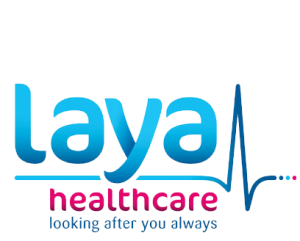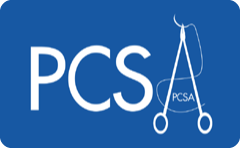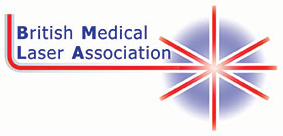 Download this information as a PDF
Download this information as a PDF
Roaccutane (isotretinoin): What patients need to know
Roaccutane (also known as isotretinoin) is an extremely effective medication for the treatment of severe or resistant acne. It is derived from vitamin A. Doctors have gained a lot of experience with this drug, which was first launched in 1982. Most patients need between four to nine months of treatment depending on the severity and extent of their acne. Almost all patients respond to Roaccutane, even those with severe, resistant acne. Most patients, who clear with acne, will remain clear for a long period of time and many will be permanently cured of their acne. However, about one in three patients may relapse a few months or a few years after completing a course of Roaccutane. These patients may respond to less potent forms of acne treatments or may require another course of Roaccutane.
For female patients, it is imperative that they do not become pregnant while taking Roaccutane as this can have severe damaging effects on an unborn child. For this reason, all women of childbearing age, whether they are sexually active or not, have to use an effective method of contraception (e.g. ''the pill') for one month before, throughout the course of treatment and for one month after completing the course of Roaccutane. For women who are sexually active, they need to use two effective methods of contraception (eg. the oral contraceptive pill and condoms) for the same period. The pill can sometimes make you moody – if this happens, please let Dr Buckley know. If a woman becomes pregnant or thinks she might be pregnant while taking Roaccutane she should stop the drug immediately and report her concerns to Dr Buckley.
Although Roaccutane has been available since 1982, there is still no clear-cut evidence that Roaccutane can cause depression. However, if you have persistent tiredness, irritability, poor concentration, sleep disruption, sadness, crying spells, loss of motivation or forgetfulness while on Roaccutane and if these persists most days for more than two weeks, please let Dr Buckley or the nurse know. You may require reduction in the dose of your treatment or your Roaccutane may have to be stopped while these symptoms are being assessed. Some studies have shown that acne itself can cause mood disorders or depression and treatment with Roaccutane can improve mood in these people. Please let Dr Buckley know if you ever suffered from depression in the past.
Please inform your family doctor that you are taking a course of Roaccutane. If you are attending a counsellor or a psychiatrist, please inform Dr Buckley before staring Roaccutane and please inform your counsellor that you are taking Roaccutane. Please read all the printed information supplied by Dr Buckley and the product information contained in your box of medication. Roaccutane does not mix well with alcohol or illegal drugs. Please try to abstain from these whiles on Roaccutane and for one month after completing your course.
You will need to be seen monthly for fasting blood tests and a urine test for the duration of the course of your treatment and one final visit three months after completing your treatment. Female patients need one extra visit five weeks after finishing Roaccutane. Please discuss any problems you may be experiencing with Dr Buckley or the nurse on each of these visits.
Other possible Side Effects
Roaccutane will cause dryness of the mucous membranes, (lips, nose, eyes, genitalia and the skin around the anus). These symptoms are often dose related and so if you are having a lot of trouble with dryness, Dr Buckley may reduce the dose you are taking.
Moisturiser your lips frequently with “Vaseline Lips”, “La Roche-Pasay Cicaplast Lip Balm” or “Carmex Lip Balm”. You may also have to moisturise your nose, genitalia and peri anal skin. If you suffer dry eyes Dr Buckley may recommend artificial tears. Please inform Dr Buckley if you are still having trouble despite moisturising.
Dr Buckley will prescribe 1% Hydrocortisyl ointment, which can be applied to the lips twice a day throughout the treatment if dry lips are a problem and not responding to a lip moisturiser. This can also be applied to the genitalia and the peri anal skin, twice a day, if dryness is not resolved by simple moisturisers such as Vaseline or Emulsifying ointment. Sometimes the skin in these areas can get cracked, sore and scabby. If this occurs, you may require topical or oral antibiotics. Please discuss with Dr Buckley. If you have suffered from eczema in the past, you may experience a relapse of your eczema while on Roaccutane. This usually responds to greasy moisturisers, avoiding soaps and other irritants and eczema treatments such as steroid ointments.
Some people will get a temporary flare up of their acne in the first month of treatment. Roaccutane can make you more sensitive in the sun, so be careful in the sunny weather by wearing appropriate clothing, a broad brimmed hat and high factor sunblocks. As your skin is sensitive while on Roaccutane, do not have any cosmetic skin treatments (waxing, dermabrasion, laser) while on Roaccutane and for six months after completing the course.
Some people may experience lower back pain, muscle aches or joint pains while on Roaccutane, particularly if they are training hard. You may have to reduce your level of physical activity while on Roaccutane. If this does not help, please discuss your problems with Dr Buckley. Other rare side effects include temporary hair thinning, headaches, tiredness, diarrhoea and difficulty with night vision or colour vision. There are very rare reports that Roaccutane may cause sexual dysfunction, including decreased libido, erectile dysfunction, orgasm difficulties, and genital dryness. On the other hand, having clear skin may enhance sexual desire and performance. If you have any of these problems, please discuss them with Dr Buckley or the nurse.
Roaccutane cannot be used if a woman is breastfeeding. Do not donate blood at the blood bank while on Roaccutane and for one month after finishing Roaccutane. Do not share your tablets with anyone else, particularly other women. Do not take vitamin A supplements while on Roaccutane.
Please do not use other acne therapies while on Roaccutane.
Dosage
The usual starting dose is 0.5mg per kilogram of your body weight per day. Roaccutane is usually given in one single dose and should be taken with food or with a glass of milk as this helps its absorption. If you are under 18 years old, you will need to be accompanied by an adult for every visit. Please do not Google the word Roaccutane as you will get a lot of false information regarding Roaccutane which may confuse you. Do not buy Roaccutane on the internet – it needs to be prescribed by a doctor with experience in its use and it needs to be dispensed by your local pharmacist.
For more information also see:
www.kerryskinclinic.ie and www.aad.org/isotretinoin
If you have any problems while on Roaccutane please contact Dr Buckley or his nurse immediately on the following contact numbers:
Office hours: 066 7174066
Out of hours: 087 254 1000 (Dr Buckley’s personal mobile phone number - Please use only in the event of an emergency.)














